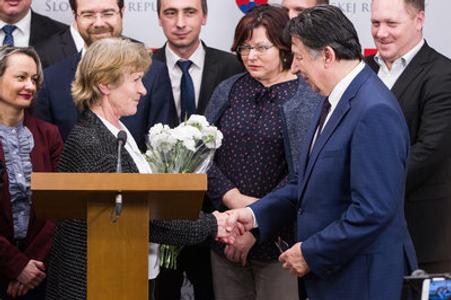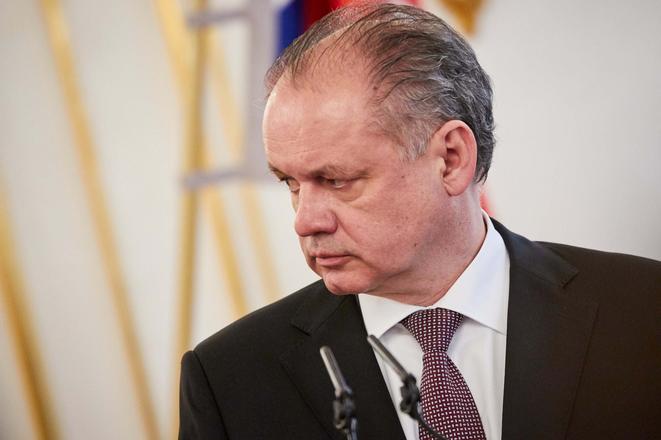In a much awaited step, and one day earlier than originally expected, Slovak President Andrej Kiska signed an amendment to the Constitution that gives parliament the competence to revoke lawless amnesties and individual pardons.
After the change has been published in the Codex, MPs can start revoking the amnesties of ex-prime minister Vladimír Mečiar and the pardons of ex-president Michal Kováč concerning his son, dating back to the 1990s.
“After almost twenty years, the effectiveness of the immoral Mečiar’s amnesties is drawing to an end,” Kiska commented, as quoted by the TASR newswire. !I would like to appraise all those who are behind this step. I would like to appraise members of the Slovak Parliament for them – despite various discrepancies – ultimately all identifying with the fact hat the Constitution really needs to be amended and having signed the constitutional law. However, I also want to appraise the huge support of the public, experts, and all those who have stood behind the nationwide social pressure,” president summed up.
Chairman of the coalition party Most-Híd, Béla Bugár, added that the resolution through which the parliament can revoke the Mečiar amnesties from 1998 and the pardon of Kováč towards his son has been already prepared. “It is a cabinet proposal but we will further negotiate; we are not small-minded and are concerned about the result,” Bugár said, adding that justice must benefit from this procedure.
For the resolutions to be debated, at least 30 MPs must ask for it and at least 90 votes are necessary for it to be approved. Even if parliament revokes amnesties in this way, the Constitutional Court will check on this step within 60 days.
Coalition vs opposition
All coalition MPs present voted for the amendment to the Constitution, except for Anton Hrnko of the SNS party who was against. Of the opposition MPs, all OĽaNO-NOVA, Sme Rodina and most SaS and independent MPs voted for the amendment necessary to scrap the amnesties, TASR wrote. The opposition had problems with the evaluation of the amnesties by Constitutional Court being automatic (for all amnesties) and they also required that the abolishing of pardon of Michal Kováč concerning his son, Michal Kováč Junior, be completed with pardons for the crimes connected to the Technopol case.

These requests were not accepted; but the coalition yielded in the rights of deeds that the amnesties are related to, the Sme daily wrote. Parliamenat will also be represented before the Constitutional Court by two lawyers, Peter Kresák of Most-Híd for the coalition, and Peter Kubina, who has focused on amnesties in the long term, for the opposition.
MPs agreed that the pressure of the public helped to push through the revocation, as the due petition was signed by a record number of people, and the film Kidnapping / Únos also helped revive the issue. Also, about 26 legal experts raised voices who opined that the amnesties can be revoked – despite what top politicians have been claiming for almost 20 years.
The parliament can thus revoke the amnesties already this week, Sme informed, citing Speaker of Parliament Andrej Danko (SNS).



 Andrej Kiska (source: Marek Mrvis, SITA)
Andrej Kiska (source: Marek Mrvis, SITA)